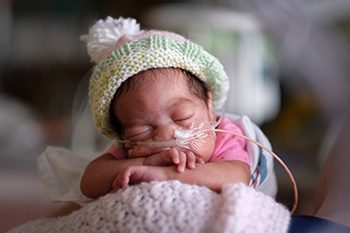New Knowledge, Innovations & Improvements
Nurse Research Fellowship
At University Health, we are proud to foster a culture of curiosity and innovation through our Nursing Research Fellowship Program. This transformative, year-long initiative provides nurses at all levels with the encouragement, resources and support they need to lead meaningful research projects that advance the future of health care. By offering robust education, individualized mentorship and collaborative guidance from leaders such as the Research Council, UT Health San Antonio School of Nursing Faculty and a diverse array of multidisciplinary professionals, the program ensures fellows are equipped every step of the way—from identifying research questions to implementing their studies. Each fall, a select group of nurses embarks on this inspiring journey, attending engaging seminars, participating in consultations and driving nursing research that makes a lasting impact on patient care and the health care industry.
Below is an image of our 1st Nursing Research Fellowship Cohort.
Neonatal Intensive Care Unit Achieves Level IV Designation
University Health’s Neonatal Intensive Care Unit (NICU) has earned the highest designation from the American Academy of Pediatrics and is now a designated Level IV NICU.
The new designation was created in an effort to improve maternal and neonatal outcomes. To establish the new rules, the Texas Perinatal Advisory Council developed to standardize neonatal levels of care based on guidelines from the American Academy of Pediatrics and the American College of Obstetricians and Gynecologists.
The neonatal level of care designation rule became effective June 9, 2016. The designation is an eligibility requirement for Medicaid reimbursement and compliance of House Bill 15, 83rd legislature, effective Sept. 1, 2018. The rules went into effect March 1, 2019. University Health’s NICU applied to the American Academy of Pediatrics to be surveyed for compliance in June 2017.
The achievement was a collaborative effort among nursing leadership, physicians and all service lines to accomplish and meet the requirements. A program plan was compiled that described the capabilities and services we offer to our patients. It gave a perspective as to what we do well and where we have an opportunity to improve outcomes for these vulnerable patients.
The American Academy of Pediatrics survey team was comprised of physicians, nurse practitioners nurses, and a representative from the Texas Department of State Health Services. The team reviewed our processes and our compliance with the rules. After this two-day process, no deficiencies were found. In November 2018, we were designated a Level IV NICU. This is the highest level of care for a Neonatal Intensive Care Unit.


